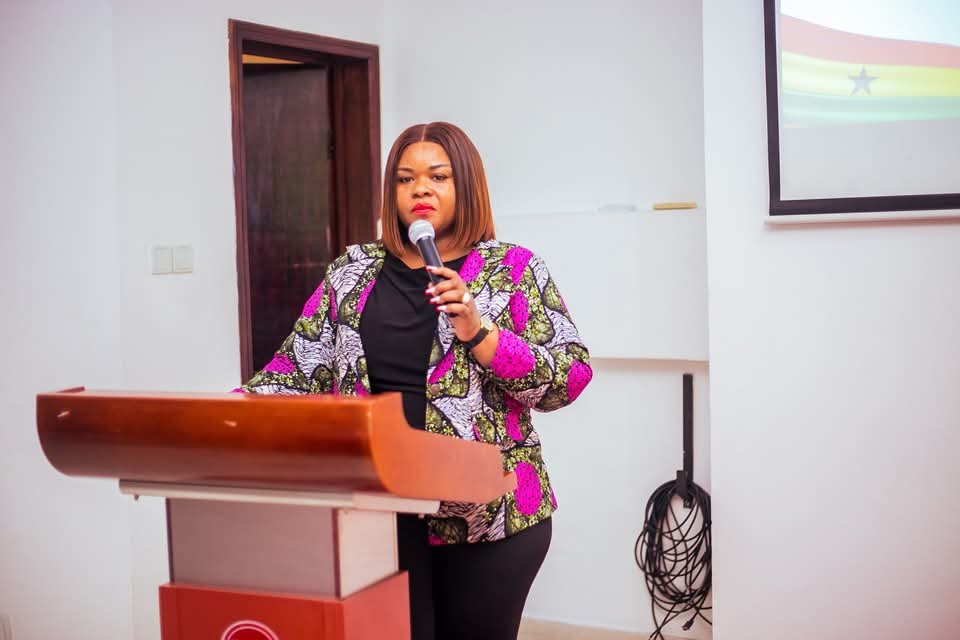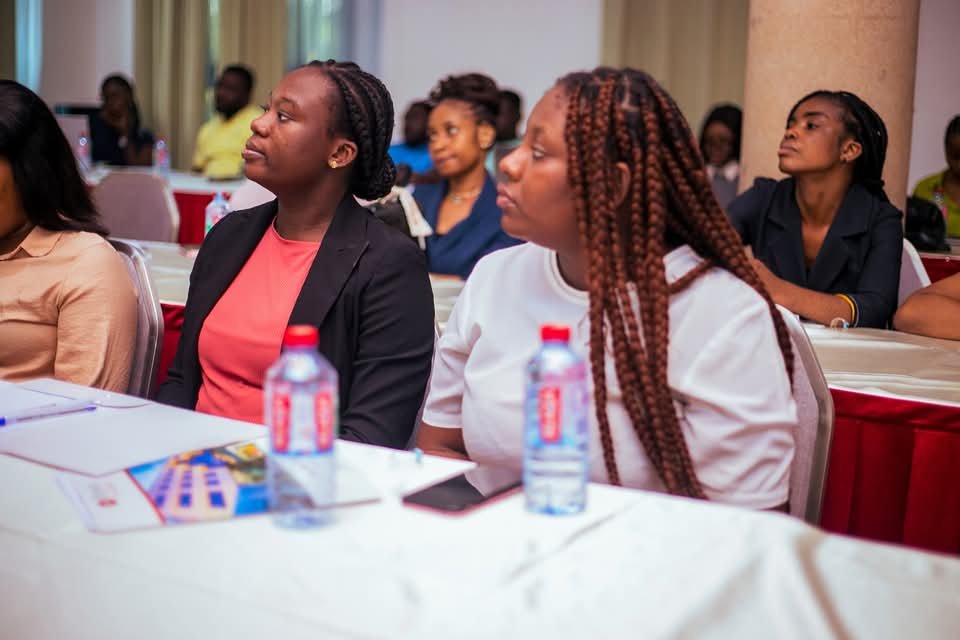News
NSA olds Strategic Management Session on Deployment for Growth

The National Service Authority (NSA) has held a high-level management session on Strategic Deployment as a Driver for National Service Growth at the Best Western Premier Hotel in Accra.
The meeting, which took place on Friday, brought together Regional and District Managers from across the country to deliberate on how deployment to Non-Subvented Organisations can drive growth for the Authority and increase its Internally Generated Funds (IGF).
Rationale
Speaking on the rationale behind the session, the Director-General of NSA, Mr. Felix Gyamfi, underscored the need for proper engagement and strategic deployment to enhance the financial standing of the Authority. 
He stressed that posting National Service Personnel (NSP) to Non-Subvented Organisations, which contribute 20% service charges to the NSA, is a key strategy to improve revenue generation and sustain operations.
“I am very clear in my mind that this is the way to go. That way, we can generate a lot of money for the running of the Authority and, by extension, create an enabling environment for staff welfare to be realised,” he stated.
Beyond revenue, the Director-General expressed concern over the inefficiencies in the current system, where some NSP are left idle under trees due to improper deployment, yet receive monthly allowances.
“I believe this is a waste of time and expertise. The service year is meant to expose these personnel to a structured working environment that enhances their career experience in the job market,” he pointed out.
He called on NSA staff at all levels to demonstrate commitment in achieving the new strategic direction, emphasising that once an NSP is posted to a Non-Subvented Organisation, reposting should not be entertained.
“This approach will not only increase our IGF but also reduce the financial burden on the government in paying allowances, thereby creating an enabling environment for improved staff welfare,” he outlined.
Crucial step
The Deputy Director-General of NSA, Ruth Dela Seddoh applauded the initiative, describing it as a crucial step towards national growth. She called for support from all NSA staff to ensure the success of this new direction.
“This is a great initiative, and we all need to align with it to drive national growth. Supporting this agenda will benefit NSP, NSA staff, stakeholders, and the nation as a whole,” she noted.
The session also featured a presentation by a consultant, Samuel Colley, who shared insights on how research into Non-Subvented Organisations can contribute to NSA’s growth.
He highlighted a major challenge where NSP originally posted to private entities often ends up elsewhere, leaving these companies with little or no personnel despite their willingness to absorb them.
“From our research findings, some private entities have expressed frustration with NSA’s deployment system. I suggest that we engage them more effectively to ensure that the Authority generates significant revenue through service charges,” he stated.
The consultant stressed the need for pragmatic interventions to ensure that private sector engagement is effective and mutually beneficial.
During the interactive session, NSA District Directors from various regions shared their perspectives on how to achieve the new strategic targets.
They acknowledged the pressing need for more human resources, better motivation for staff, and adequate logistics, particularly vehicles, to facilitate engagement with private sector organisations.
They opined that with improved resources, NSA could expand its revenue streams and explore alternative means of income generation.
Market Demands
For his part, the Director of Corporate Affairs, Armstrong Esaah, emphasised the need for greater awareness and education on market demands when it comes to deploying NSP.
He highlighted that understanding industry requirements is critical to achieving the set targets. “We need to inform university management about the specific demands of the job market. Fields like IT, Engineering, Sciences, and Architecture are in higher demand than traditional disciplines such as Arts and Marketing. Aligning NSP deployment with these market realities will enhance our efficiency and revenue generation,” he explained.
He urged NSA to take a more proactive approach in bridging the gap between academia and the job market.
The Director-General reassured staff members of his full support to ensure that NSA generates the needed IGF to boost staff morale and improve working conditions.
“For me, I will fully support any good initiative that generates funds for the activities of the Authority. We should all come together to make this happen, and we will see how NSA will improve, “he assured.
He further stated that leveraging private sector deployment is a game-changer for NSA’s financial sustainability, saying, “The discussions reinforced the need for strategic partnerships, improved research, proactive engagement, and commitment from all NSA staff”.
He added that with a clear roadmap and collaborative efforts, the NSA is poised to transform its deployment strategy, ensuring that National Service Personnel gain valuable work experience, contribute meaningfully to national development, and boost the Authority’s revenue streams.
News
Man sentenced to 25 years for robbery at Manso Akwasiso

A 30-year-old man has been sentenced to 25 years imprisonment with hard labour by the Bekwai Circuit Court for his role in a 2022 robbery at a mining site at Manso Akwasiso in the Ashanti South Region.
The convict, Dominic Ofori, also known as Fanta, was arrested on 16th February 2026 after years on the run. He pleaded guilty before the Bekwai Circuit Court to robbery contrary to Section 149 of the Criminal Offences Act, 1960 Act 29, and was accordingly sentenced to 25 years imprisonment with hard labour.
On March 20, 2022, the Manso Adubia District Police received intelligence that a group of armed men from Manso Abodom were planning to attack a mining site at Manso Akwasiso to rob the owner of gold concentrate. Acting on the information, police mounted a coordinated operation and laid an ambush at the site.
At about 5:30 pm the same day, four-armed men arrived at the site, fired indiscriminately, and robbed the miners of their gold concentrate. The police team on surveillance intervened, resulting in an exchange of gunfire.
Three of the suspects, Abu Abubakar, Musah Latif, and Gideon Takyi, sustained gunshot wounds and were pronounced dead on arrival at St Martins Catholic Hospital at Agroyesum. Dominic Ofori escaped at the time but was later arrested and put before the court.
The Ashanti South Regional Police Command has assured the public of its continued commitment to combating violent crimes and bringing offenders to justice.
News
Ashanti police arrest man for publishing false news on TikTok

The Ashanti Regional Police Command has arrested 45-year-old Isaac Boafo, also known as “Duabo King,” for allegedly publishing false news intended to cause fear and panic.
Police said the arrest follows a viral TikTok video in which Boafo claimed that four officers at the Central Police Station in Kumasi engaged in inappropriate conduct with commercial sex workers during night patrols in Asafo.
Officers from the Police Intelligence Directorate (Ashanti Region) apprehended Boafo after receiving intelligence about the video.
During questioning, he admitted to creating the video to attract views and engagement online, and acknowledged that he could not prove the allegations.
Boafo also admitted making comments about the President of the Republic for content purposes and could not defend those statements.
He has been formally charged and is in detention as investigations continue.
The Ashanti Regional Police have warned the public against publishing or sharing false information on social media, noting that such acts can cause fear, panic, and damage reputations.
They said anyone found engaging in similar conduct will face legal action.
By: Jacob Aggrey














